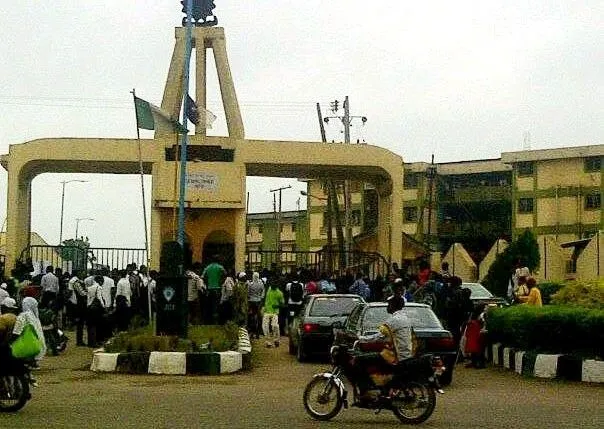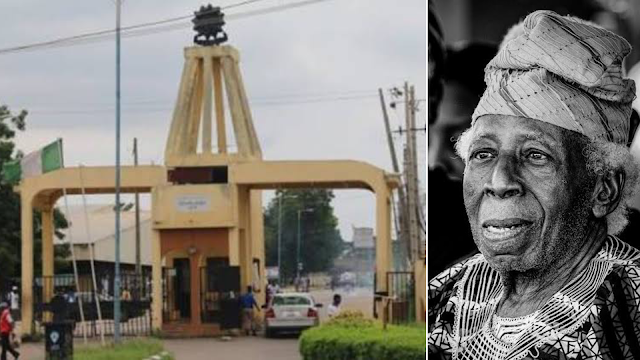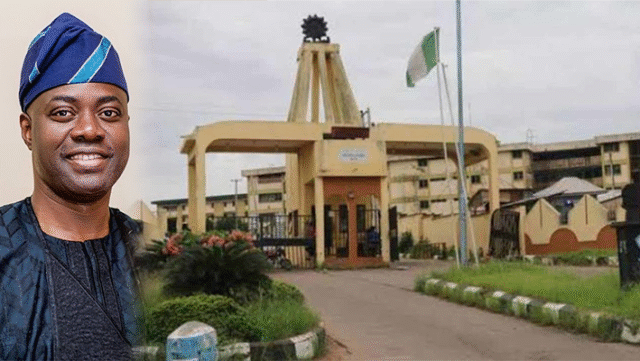In a heartfelt and carefully reasoned appeal, the Students’ Union Government (SUG) of The Polytechnic, Ibadan, has formally petitioned the Oyo State House of Assembly to halt Governor Seyi Makinde’s recent declaration renaming the school in honour of the late Dr. Omololu Olunloyo. The students’ letter, which marks a pivotal moment of civic engagement, flags the proposal as a potential threat to the institution’s rich history and well-earned reputation.
On 26 June 2025, during a service at Obafemi Awolowo Stadium celebrating Dr. Olunloyo, Governor Makinde surprised many by announcing that The Polytechnic, Ibadan would be rebranded as Omololu Olunloyo Polytechnic, Ibadan. The move sparked immediate concern among stakeholders, particularly students and alumni, who view the change as a disregard for the school’s half-century legacy.
The SUG’s submission to lawmakers, co-signed by President Oladipupo Olamide and General Secretary Azeez Tolase, emphasised the institution’s established identity:
“The Polytechnic, Ibadan has a rich legacy spanning over five decades, and its name is synonymous with excellence in education. Renaming it would erase its identity and legacy”
Their plea seeks urgent action from the House of Assembly, urging them to delay or dismiss the renaming motion in the upcoming legislative session.
Heritage at Risk: Students Outline Their Concerns
The SUG letter does more than register disapproval—it presents a measured case highlighting the long-term repercussions of renaming one of Nigeria’s premier polytechnics:
- Institutional Memory & Brand Equity
Over five decades, the name “The Polytechnic, Ibadan” has become a hallmark of academic achievement. Students argue that replacing it could undermine the historical resonance that underpins student pride, alumni allegiance, and prospective student interest . - Alumni Engagement & External Recognition
Alumni expressed apprehension that changing the name might disrupt ongoing investments and diminish the prestige associated with their diplomas. A non-academic staff leader, Yomi Akande, warned that this could lead to reputational loss without yielding any tangible improvements. - Lack of Substantial Rationale
Critics, including the youth-focused “Youth Arise Movement”, note the absence of documented accomplishments by Dr. Olunloyo during his tenure to justify the renaming. Instead, they advocate for honouring his memory through infrastructure dedicated in his name, rather than a wholesale rechristening. - Strategic Priorities vs. Symbolic Gestures
The youth group contended that the state’s investment should be directed toward infrastructure, innovation hubs, and research capacity, rather than name changes that confer little added academic value.
The SUG also pressed for dialogue, expressing willingness to join in roundtable discussions with the Assembly and the Governor, to ensure decisions reflect the collective interest of the Polytechnic community.

Assembly’s Role and A Call for Deliberation
Under Nigeria’s legal framework, institutional name changes require legislative endorsement. The SUG, recognising this check on executive power, has urged the Oyo Assembly to scrutinise the governor’s declaration before taking any definitive action.
They emphasise that the Assembly’s ruling will have wide-reaching consequences. Preserving the institution’s name sends a message that heritage matters; changing it might broadcast instability and disapproval to stakeholders.
Rumours suggest the Assembly is scheduled to address the motion in its upcoming session, and the SUG’s letter arrived just in time to sway the debate.
Alumni and Public Voices Validate Concerns
The SUG’s stance is mirrored by a chorus of alumni and community advocates. In a statement on 27 June, SUG President Olamide affirmed the community’s resolve to safeguard the Polytechnic’s identity:
“We strongly believe that this decision is unjustifiable and disregards the rich heritage and history of our beloved school… The name ‘The Polytechnic, Ibadan’ is synonymous with quality education.”
Further, leaders within the alumni network and unions, such as the Non‑Academic Staff Union, have signalled their readiness to contest any hasty votes that could set a precedent of top-down decisions on institutional branding.
Grassroots voices, including Oyo cultural custodians, reached out on social platforms, prodding the governor to preserve the Polytechnic’s name, suggesting alternative ways to honour Dr. Olunloyo’s contributions.
Balancing Recognition with Institutional Integrity
The debate brings forward a larger question: how should states honour distinguished individuals while maintaining institutional identity?
Many argue the better route is dedicating facilities—like roads, halls, or lecture theatres—in memory of Dr. Olunloyo. Such gestures celebrate his legacy without overshadowing the Polytechnic’s established brand.
Moreover, stakeholders urge a deeper consultative process involving lecturers, students, alumni, and local leaders before enacting permanent changes to foundational institutions.

Moving Forward: What’s at Stake
As the Oyo Assembly prepares to deliberate, several critical factors await consideration:
- Legislative Prudence: Should lawmaking proceed absent widespread stakeholder input?
- Community Involvement: Will the Assembly enable broader voices in deciding if and how the Polytechnic is renamed?
- Precedent Setting: How will this decision influence future attempts to rename state-funded institutions?
Rather than rushing to change legal documents, stakeholders advocate a thoughtful path that honours individuals and reinforces institutional strengths.
Conclusion
At the heart of this controversy is more than nomenclature—it is a conversation about culture, legacy, and who gets to influence the collective memory of an educational institution.
By submitting their appeal, the Ibadan Polytechnic students have demonstrated civic responsibility and a clear-eyed understanding of institutional heritage. Now, the ball is in the Assembly’s court. Will their decision reflect procedural diligence, historical respect, and democratic representation? Or will it veer toward a dramatic rebranding that risks unsettling half a century of identity and goodwill?
The Polytechnic, Ibadan, stands at a crossroads — a moment that will define not only its name, but the values it chooses to project and preserve.
Join Our Social Media Channels:
WhatsApp: NaijaEyes
Facebook: NaijaEyes
Twitter: NaijaEyes
Instagram: NaijaEyes
TikTok: NaijaEyes
READ THE LATEST EDUCATION NEWS








































